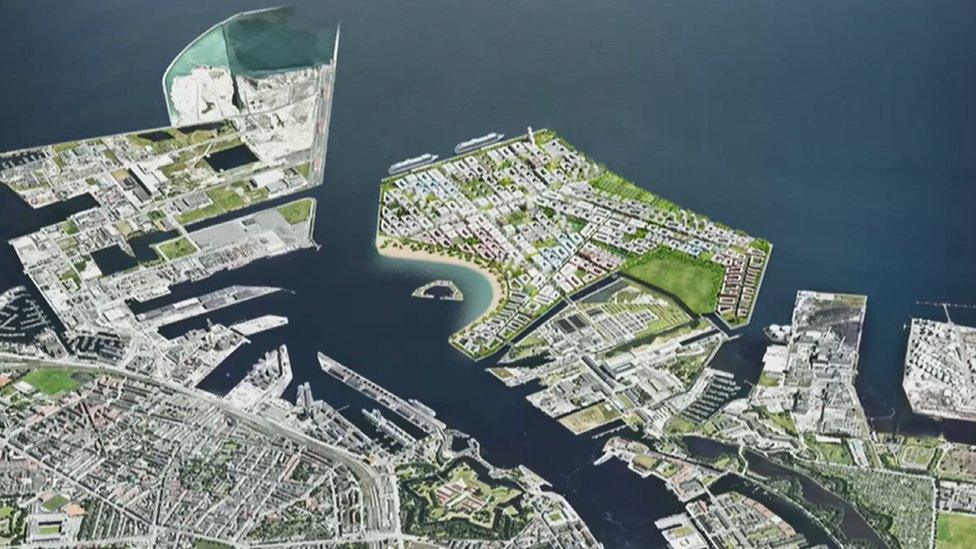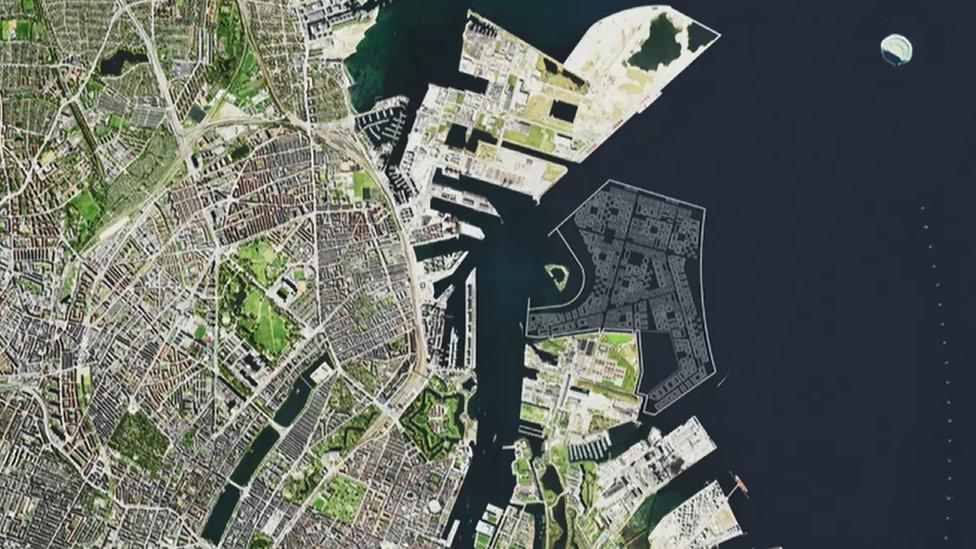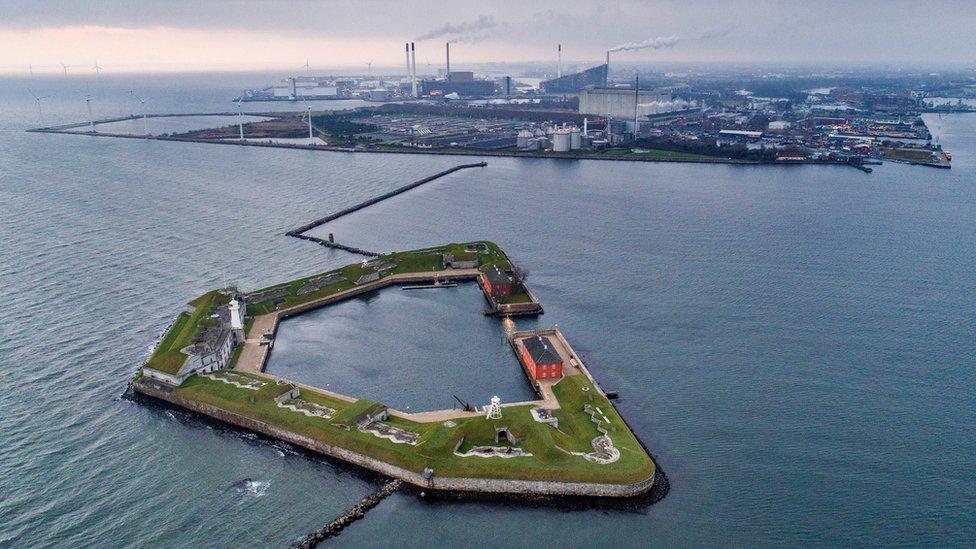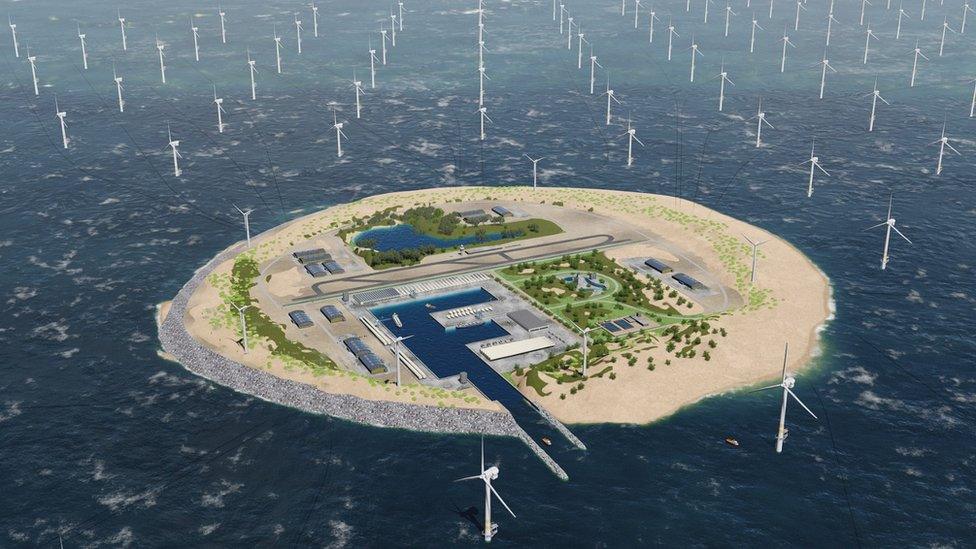Denmark parliament approves giant artificial island off Copenhagen
- Published

What the new island of Lynetteholm, off Copenhagen in Denmark, would look like
Plans for an artificial island to house 35,000 people and protect the port of Copenhagen from rising sea levels have been approved by Danish MPs.
The giant island, named Lynetteholm, would be connected to the mainland via a ring road, tunnels and a metro line.
The approval by Denmark's parliament paves the way for the 1 sq mile (2.6 sq km) project to begin later this year.
But it faces opposition from environmentalists who have concerns over the impact of its construction.
Plans for Lynetteholm include a dam system around its perimeter, with the aim of protecting the harbour from rising sea levels and storm surges.
If construction goes ahead as planned, the majority of the foundations for the island off Denmark's capital should be in place by 2035, with an aim to fully complete the project by 2070.

A computer-generated bird's eye view of the planned construction
A case against the development of Lynetteholm has been brought before the European Court of Justice by environmental groups.
Concerns include the transportation of materials by road involving large numbers of vehicles. One environmental assessment suggested that up to 350 lorry journeys a day through Copenhagen would be required to deliver the raw materials once construction had begun.
Building the artificial island, the size of about 400 football pitches, would require some 80 million tonnes of soil to be delivered to the area to create the peninsula alone, local media report.
There are also concerns among environmentalists about the movement of sediment at sea and the possible impact on ecosystems and water quality.

The port of Copenhagen, where the artificial island Lynetteholm is planned to be built, as it is today
Protesters gathered outside the parliament building in Copenhagen as the bill passed on Friday with a majority of 85 in favour and 12 against, according to Danish broadcaster DR.
One demonstrator from Copenhagen, Eva Larsen, said she was "very worried" about the prospect of construction lorries passing through the city on a daily basis, DR reported.
Another protester, Nicholas Woollhead, said a decision on Lynetteholm should not have been made before local elections in November.
"This project, which is the largest in Copenhagen's history and one of the largest infrastructure projects in Danish history, is simply pulled down over our heads between election periods where we do not have a chance to be heard," he said.
Carina Christensen, the head of the association for the Danish road transport of goods (IDT), said more "climate-friendly" transport was an option when delivering materials for the construction of Lynetteholm, but that it would require the go-ahead from government officials.
"Electric trucks will, for example, remove CO2 emissions and reduce noise, but in return cost more and lead to more trips," she said.

You may also be interested in:
Why is the 'doomsday glacier' melting so rapidly?
Related topics
- Published4 January 2018
